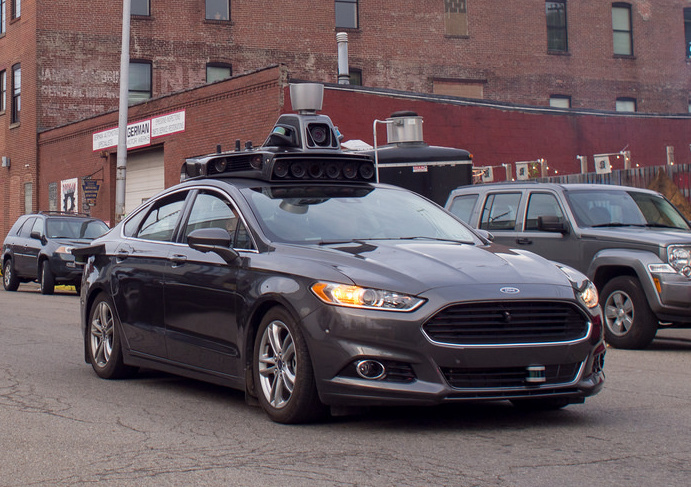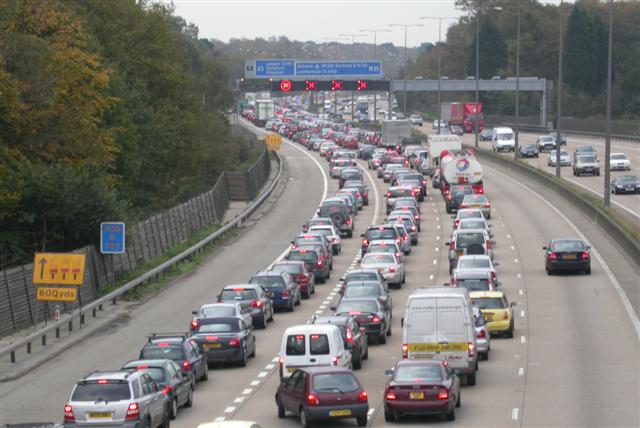Talk to driverless car enthusiasts and they’ll tell you the future is a blissful utopia where everything about road travel gets safer, cheaper and quicker.
Their utopia tends to look like this…
Driverless cars and trucks will “platoon” on motorways and main roads, keeping a steady speed and constant distance from the vehicle in front.
So instead of speeding up, slowing down and switching lanes, as we humans tend to do, driverless cars will be more efficient, cheaper to run, and more environmentally friendly. And there’ll be fewer traffic jams.
And as human error is a factor in 95% of road accidents – and the sole reason behind 76% – putting the machines in charge will make the roads safer too.
At least, that’s what the driverless car enthusiasts will tell you.
But the driver of the car – human or machine – isn’t the entire problem.
For example, why is there traffic congestion in towns and cities?
Too many cars on the road, right?
According to one academic, 45% of urban traffic relates to motorists looking for parking … and the cheaper the parking space the better.
Look at only the local traffic in those towns and cities rather than people travelling in from further afield, and the proportion of motorists looking for a parking space rises to 64%.
So maybe urban planning and decisions about where cars can park need to get smarter too?
There are three main reasons why some commentators believe that driverless cars will lead to more congestion:
- The rise of mobility-on-demand
Firstly, some believe that car ownership will fall in future as we become accustomed to ordering a driverless vehicle to pick us up and drop us off wherever we want to go and whenever we want to go there.
It’s the vision of the future that digital taxi firm Uber is banking on – and one of the reasons Singapore started trials of driverless taxis in August.

If there’s no human driver to pay – no taxi driver trying to make a living – the cost of these journeys will become far cheaper than today.
Car ownership would become unnecessary from a practical perspective, and an expensive way to travel around.
But this doesn’t reduce the volume of traffic on the roads; it just reduces the demand for parking.
Cut the cost of road travel by 80% and you will increase the road miles travelled by 60%, according to one academic.
So driverless mobility-on-demand may mean more vehicles moving around towns and cities than before; just collecting and dropping off passengers. That’s no solution to congestion.
- An increase in car journeys by two age groups
The second point is that the demographics of car use may change.
The business consultants KPMG believe that cheap, driverless taxis will see a surge in demand for car travel from “non-drivers” in two age groups: 16-24s and the over-65s.
Based on their research in the US, the consultants predict that driverless mobility-on-demand from just those two age groups would add 2 trillion – yes, 2 trillion – miles to the 3 trillion miles clocked up by American motorists last year.
Again, that’s more traffic, more congestion.
- Driverless cars on errands
Let’s forget about points one and two for a moment. Let’s assume that car ownership holds steady and driverless taxis don’t clog the roads with more traffic.
There’s still that parking problem. Today, you park your car where you need it to be at a certain time. And as it can’t move by itself, it sits there waiting for you …
Driverless changes the game. In future, your car can drop you off, return home or to an out-of-town free parking slot, then come back and pick you up.
Maybe you can “send it on errands” – drive-thru grocery collections, for example – while you get on with work or take a break.
The parking problem is solved … but rush-hour is no-longer a one-way journey to work in the morning or back home at the end of the day. Your car remains on the road and takes a longer journey.
Put those three things together and there’s a simple conclusion.
Driverless cars will change human behaviour and influence the choices we make in unexpected ways.
Will the roads be safer, will there be less traffic?
Today, we can only guess. So what’s your view – will driverless mean the end of congestion?
Will you have to explain to your grandchildren what a “traffic jam” was? Or will the roads be more clogged than ever?
<ends>

